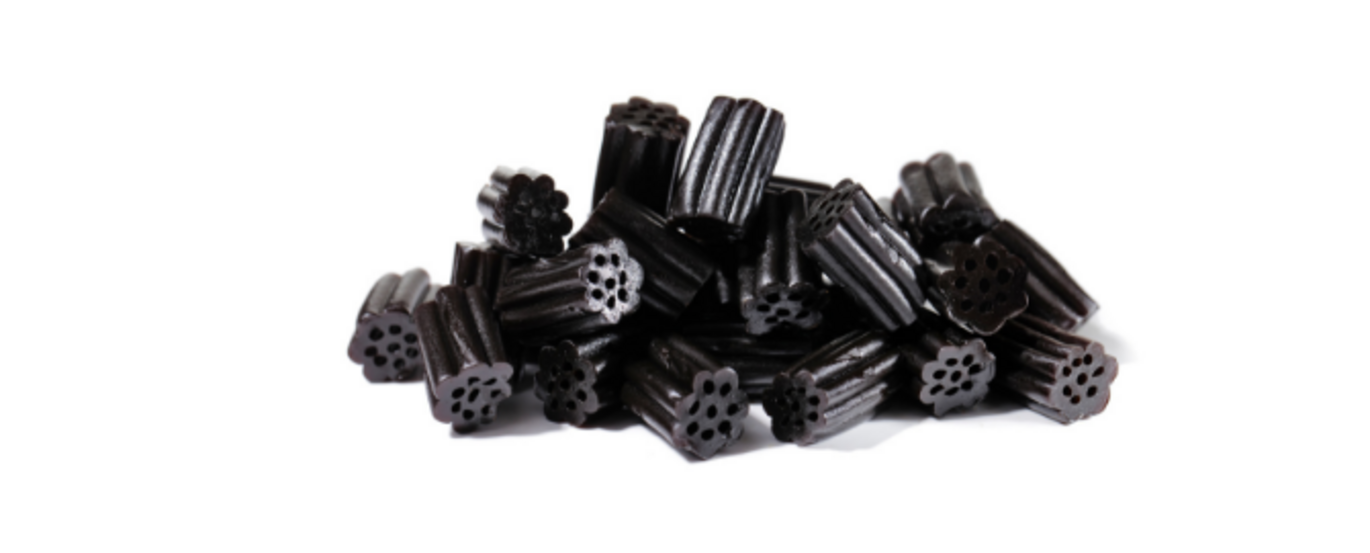GUIDE: Danish food: Delicious pork and mouthwatering cakes – but what is up with all that licorice?
You’d have to be a fool (or a vegetarian) not to enjoy a Danish pork roast – juicy on the inside, crispy on the outside. But the licorice thing (Why do they put it in cakes???) is harder for foreigners to stomach. And make sure you take Google Translate with you when you do your grocery shopping.

New in Denmark – and at AU?
In this guide, four international students who have all been studying at AU for at least one semester share the top tips they wish they’d known when they arrived.
The guide has three sections:
- Meeting Denmark and the Danes: Good at English – and hard to get to know?
- Campus life: Accessible professors and nude races
- Danish food: Delicious pork and mouthwatering cakes – but what is up with all that licorice?
Meet your guides to Denmark and the Danes:

Xiaobo Zhang, 23 years old, from China
Studied at AU in 2017 for a semester in connection with her BSc in economics in 2017. Returned in August 2018 to take her MSc in economics at AU.

Kyriaki Karvela, 26 years old, from Greece
Started at AU in February 2017, where she’s taking her MSc in technology-based business development in Herning.

Martin Varga, 23 years old, from Hungary
Has lived in Denmark for almost three years, took an AP degree at EUC in Aalborg and has studied at AU since August 2018, where he is studying business administration (BSc).
Has been living in Denmark for almost three years. Began his studies in Denmark on an AP degree programme at UCN in Aalborg and switched to Aarhus University in August 2018, where he is now studying economics and business administration (BSc).

Ruxandra Ariana Danaila, 22 years old, from Romania
Has lived in Denmark for almost three years, and is studying business administration (BSc).
What is your honest opinion about the Danish food culture?
Xiaobo: “I like Danish food. And I like that it is easy to get fresh fruit and salad in the cafeteria. We don’t eat raw broccoli and carrots in China, but I like it.”
Kyriaki: “So much meat and so much fish! Great pastries and bread! I try everything and I like almost everything. However, I do think Danes put onion and bacon on too many things. Another problem: the cheese you sell as feta – it is NOT feta! But I managed to find really great Greek feta.”
Martin: “It is not anything special. I don’t think I can mention one traditional Danish dish.”
Ariana: “I really like it.”
Finish this sentence: Don’t leave Denmark without tasting…
Xiaobo: “I really like traditional Danish Christmas food such as flæskesteg (pork roast), æbleskiver (round pancakes) and risalamande (rice pudding). But I would say don’t leave Denmark without tasting krebinetter (breaded meatballs). They are SO good!”
Kyriaki: “The pastries! I also really like smørrebrød (open-faced sandwiches) with salmon, frikadeller (meatballs) and tarteletter (puff pastry with chicken and asparagus filling). Oh, and the milk is great.”
Martin: “The crispy Danish pork roast.”
Ariana: “Tarteletter and pork roast!”

Pork roast served the traditional Danish way with potatoes, red cabbage and gravy. Photo: Colourbox
Have you had the experience of buying something completely different from what you wanted in the supermarket?
Xiaobo: “I wanted to buy yoghurt and picked up some of this ‘skyr’. It was almost solid when I opened it. It looked like paint or something. But I thought: How bad can it be? After all I found it in the cooler section of the supermarket. I tried it and it was fine. One of the points to come to a new country is to experience a different food culture.”
Kyriaki: “I wanted yoghurt but picked up some really weird milk. It was like milk turning into yoghurt, really weird consistency, I didn’t try it. It can be difficult to shop in the supermarket because everything is in Danish – but you just have to explore.”
Martin: “I once bought crème fraiche instead of yoghurt.”
Ariana: “I wanted condensed milk but got piskefløde (dairy cream) instead. There’s also so many varieties of flour, so I went to get wheat flour, but ended up with rye flour. The problem is that the packaging often writes the content in all the Scandinavian languages but rarely in English. Google Translate is your friend when you go grocery shopping!”

Apparently yoghurt can be hard to find in the supermarket. Photo: Colourbox
Anything to avoid?
Xiaobo: “I still can’t take the taste of liquorice and rye bread.”
Kyriaki: “No, try everything! I hate liquorice but you have to try it.”
Martin: “Liquorice! Never ever am I trying that again!”
Ariana: “I hate liquorice! And it is really big in Denmark, it is everywhere in gums, cakes, whatever. But that being said, I don’t think there’s anything else to avoid. There’s always a lot to choose from and also a nice variety of healthy food and organic food.”
Translated by Lenore Messick

